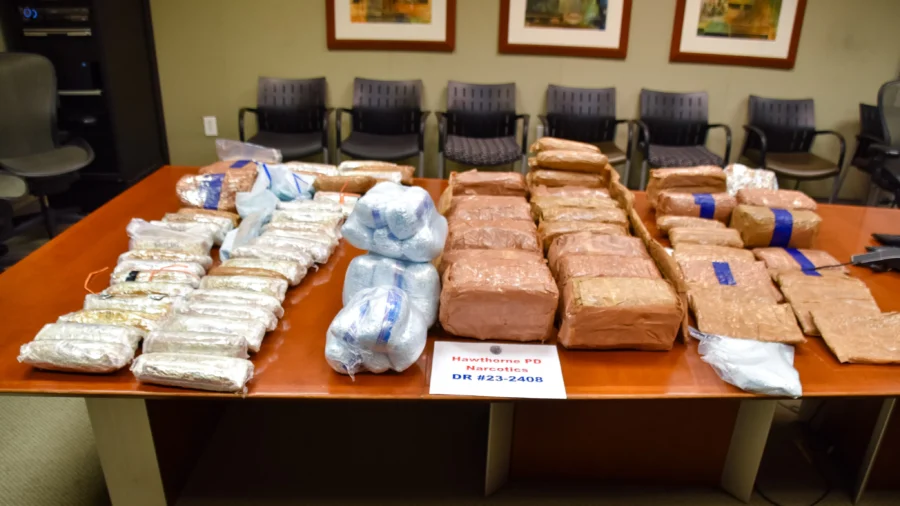President Joe Biden and his administration announced new actions on Wednesday afternoon to deal with the “scourge of fentanyl and other synthetic drugs.”
In a briefing, the administration announced that Biden is issuing a new national security memorandum to call on federal departments and agencies to step up efforts to halt the flow of illegal fentanyl and other synthetic opioids in the United States.
Biden and Vice President Kamala Harris also want Congress to pass legislation that increases penalties for those who bring illegal drugs into American communities and close loopholes currently exploited by drug traffickers.
Increased intelligence collection along with more coordination between departments and agencies is one part of the memorandum.
“As drug traffickers and suppliers adapt, we must do so as well,” the briefing reads.
The memorandum also calls for Congress to pass the administration’s “Detect and Defeat” Counter-Fentanyl Proposal, which it says is based on bipartisan ideas that come from members of Congress.
This proposal would increase tracking of small-dollar shipments, a loophole for many drug traffickers.
It would also require registration of all pill presses and tableting machines in an effort to prevent their use for making illegal drugs.
Most importantly, the legislation would classify fentanyl-related substances as “Schedule I” drugs, which would mean higher penalties for possessing or distributing them illegally.
Here are the things the briefing says the administration has done so far to stop the opioid and fentanyl overdose epidemic:
- Continued spending on detection technology at U.S. borders including “dozens” of new inspection systems this year and dozens more next year.
- Spending $82 billion on treatment for opioid misuse, a 40 percent increase over spending during the previous administration.
- Making naloxone, which can reverse the fatal impact of an opioid overdose, widely available over the counter.
- Sanctioning over 300 persons and entities since Biden’s 2021 executive order targeting foreign persons found to be involved in the global illicit drug trade.
The briefing takes credit for arresting and prosecuting high-level members of the Mexican drug cartels, including Sinaloa Cartel co-founder Ismael “El Mayo” Zambada Garcia, and Chapitos leader Nestor Isidro “El Nini” Perez Salas.
It also touts the administration’s establishment of the Trilateral Fentanyl Committee with the Governments of Mexico and Canada, and the Global Coalition to Address Synthetic Drug Threats involving more than 150 countries.
Another accomplishment the briefing cited was a new information-sharing partnership with financial institutions, law enforcement, and national security agencies to try to catch and cut off drug-related transactions.
In March, a follow-up briefing to Biden’s State of the Union address to the nation said that the Department of Homeland Security made over 2,000 arrests related to fentanyl seizure in the first five months of 2024 and seized over 13,000 pounds of illicit fentanyl along with 1,500 pill presses.
The administration is also partnering with China in a new Counternarcotics Working Group to disrupt the flow of fentanyl coming from China, it said.
The White House briefing noted that the number of overdose deaths has declined for the first time in five years.
In 2023, the Centers for Disease Control and Prevention reported that there were an estimated 107,543 drug overdose deaths in the United States, a 3 percent decrease from the estimated 111,029 overdose deaths in 2022.
It was the first decrease in annual drug overdose deaths since 2018.
Opioid overdose deaths accounted for about 81,083 in 2023, down from 84,181 of the total in 2022.
Deaths from fentanyl decreased from 76,226 in 2022 to 74,702 in 2023.

